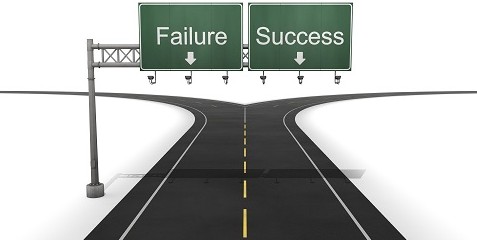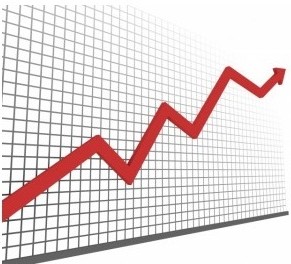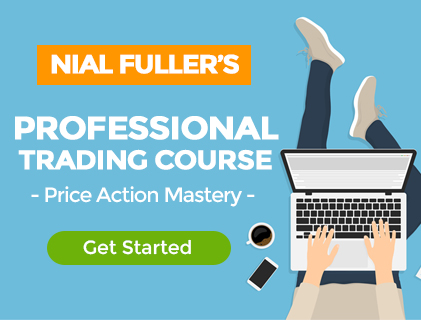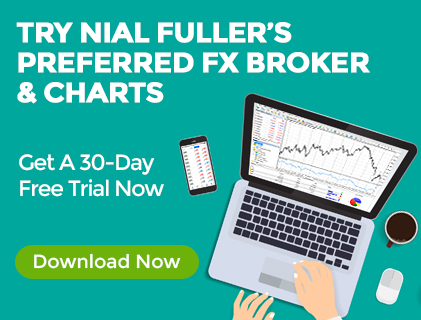The Differences Between Amateur and Professional Traders
 You might be wondering what professional traders “have” that you don’t, or what it is that they know that you don’t. In today’s lesson, I am going to explain to you that whilst professional traders are doing things differently than how you might be, they do not “have” or “know” anything that you cannot obtain or learn.
You might be wondering what professional traders “have” that you don’t, or what it is that they know that you don’t. In today’s lesson, I am going to explain to you that whilst professional traders are doing things differently than how you might be, they do not “have” or “know” anything that you cannot obtain or learn.
Becoming a professional trader might seem like something that is still quite far away from being a reality for you. You might think that professional traders have some “insider” information that you don’t know how to get your hands on. I can assure you that neither of these things are true; you are not as far away from making money in the markets and ultimately becoming a professional trader as you probably think you are, and there is no big “secret” to trading success that you have to travel to the ends of the Earth to discover. In fact, I am willing to bet that all you need to get on the track to trading success is probably a slight adjustment in how you think about trading and a willingness to begin changing your trading habits.
There clearly are some differences between professional and amateur traders, but what are these differences and how can you learn from them to improve your own trading?
Professionals REALLY enjoy trading…the thrill, the hunt; they’re passionate about it
Amateurs are looking to ‘change their lives’ or for some ‘key to success’…they probably do not enjoy trading as much as a professional and see it more as a “tool” to make them money. The professional actually loves the challenge of trading, the challenge of mastering his or her own mind and they are interested in the entire trading process, from the psychology aspects, technical chart reading, to money management. If you don’t love what you are doing, you’ll never find the necessary dedication, mindset and habits to succeed at it, and that goes for everything in life, including trading.
Now, you might think that you “love” trading and that you are really into it, but you are still losing money and you are wondering why. Simply put; there’s a difference between loving what you do and doing it correctly. For example, professional traders enjoy trading and analyzing the markets, but they are not addicted to being in the markets all the time. They are not addicted to it because they know that part of being a successful trader is having patience to wait for high-probability / obvious trade setups and not becoming “obsessed” and emotionally attached to any one position.
Pros aren’t afraid of risk but they also know how to manage and contain it
FACT: Most people are afraid of risk. That’s why when you talk about trading to most people they either think you are a little crazy or they have no idea what you’re talking about. It’s in our wiring as human beings to be risk averse, and this clearly works against most people when it comes to trading.
Trading is essentially a big mental ‘game’ of taking and managing risk. An amateur is ‘afraid’ of risk while a professional understands it, accepts it and manages it, and is thus not afraid of it. Professionals are not afraid of risk anymore, they probably were at one point, like all traders, but because they have long since accepted that risking their money is part of being a trader, and they know how to manage it properly, they no longer fear the risk involved with trading the markets.
A professional trader does not flinch when his or her trading strategy is telling them to enter. The risk involved is just ‘part of the game’ to them, and because they know how to mitigate it, they are not afraid of it. Conversely, an amateur trader might struggle with the simple act of entering a position; taking a view and pulling the trigger. Many amateur traders are afraid to commit to a trade in the first place, because of the risk involved.
Also, most amateur traders become more risk averse after a losing trade, just like most amateur poker players will become more risk averse after losing a game of poker. However, in reality, the probability of winning or losing in the market or in a poker game does not change simply because your last trade or poker hand was a loser (or winner). Professional traders understand this and they do not become more or less risk averse because of the outcome of their last trade. Amateurs become far too influenced by their last trade and this is why you have probably experienced what I call the “euphoria blow-out”; this is where you blow out your trading account, or nearly blow it out, after a series of winning trades. Amateur traders tend to feel “euphoric” or over-confident after hitting a few nice winners, then their perception of the risk in the market decreases, causing them to illogically increase their risk per trade and take low-probability trade setups; which as you might know is a great recipe for losing money really fast.
Professional traders view the market as a game of probabilities
 Knowing and accepting that you COULD lose on any one individual trade is something that all professional traders have in common. This is not so for many amateur traders however; they tend to give far too much importance to every trade they take, unaware of the fact that each trade is simply another execution of their trading strategy, and for that strategy to make them money they need to give it a chance to play out over a large series of trades.
Knowing and accepting that you COULD lose on any one individual trade is something that all professional traders have in common. This is not so for many amateur traders however; they tend to give far too much importance to every trade they take, unaware of the fact that each trade is simply another execution of their trading strategy, and for that strategy to make them money they need to give it a chance to play out over a large series of trades.
For example, if you trade an average of about 3 to 5 times per month and mainly focus on the daily charts, like I do, you will need to wait about 1 year to see your trading edge play out. You might not be profitable every month, say because you lost 2 out of 3 trades, but then the next month you might win 2 out of 3. The important thing to understand is that you need to stick to your trading method and give it TIME to play out. If you start straying from it and begin randomly entering the market, you are going to negate your trading strategy’s edge and decrease its long-term profitability.
If you trade say 3 or 4 times per week, you will need to wait a good 2 or 3 months to see your strategy pay off. You might have two losing weeks in a row, and then the next two or three weeks might more than make up for those losers. More than anything else, the ability to look past any ONE trade (and not let its outcome influence your next trading decision) and understand that you need to see your edge play out over a SERIES OF TRADES, is something that many amateur traders seem to be unable to do or that they are simply unaware of. In order to become a professional trader, you have to do three critical things:
1) Understand that any ONE trade does not determine your success or failure in the market.
2) Start trading IN-LINE with point number 1 above.
3) Doing point number 2 above by ONLY trading when you are “sure” your trading strategy is providing you with a high-probability / obvious trade setup and not cranking up or ratcheting down your dollar risk per trade because of how your last trade made you feel.
Professional traders know how to read a chart’s price action, amateurs may or may not know how
Knowing how to read the natural price action of a market is something that all professional traders know how to do well. I’m not going to say that “every” trader strictly trades with price action strategies, like I do, but certainly many do and the ones who use other strategies or methods most certainly use price action analysis in some part of their trading analysis.
Amateur traders may or may not understand the importance of learning how to trade from a market’s price action. Many of them are still stuck in the search for that “Holy-Grail” trading system, ignoring the fact that they NEED to understand how to read the raw price action of a chart if they want to really have a chance of making money as a trader. Even though I trade and teach price action trading strategies, I won’t sit here and “preach” to you and tell you that pure price action is the “only” way to trade successfully, but I WILL tell you that you need to understand how to read and trade from price action (as all professional traders do) and should you choose to develop your own “hybrid” trading strategy or use another one, having the knowledge and ability to trade off the “naked” price action of the markets will make any other method or strategy you use much more powerful.
Morphing from amateur to professional
 Your journey to becoming a professional trader begins with a focus on becoming a good trader by learning necessary skills like how to read a price chart and how to manage risk properly, then, over time if you remain disciplined and patient, you will start making money from the market. As you spend more time trading with discipline and patience, depending on how much income you need to live on, you might eventually find that you are making enough money from trading to live on. Later, you might then decide to quit your job and live solely off the income derived from trading, at THAT point, you might consider yourself a “professional” or “full-time” trader. However, as you can see, it’s not something that happens overnight, but you should not be disappointed about that. You CAN indeed start making money each month from your trading even if you aren’t yet a “professional” trader. However, how much you make will depend on your trading ability and how much money you have in your trading account, as well as how well you manage risk.
Your journey to becoming a professional trader begins with a focus on becoming a good trader by learning necessary skills like how to read a price chart and how to manage risk properly, then, over time if you remain disciplined and patient, you will start making money from the market. As you spend more time trading with discipline and patience, depending on how much income you need to live on, you might eventually find that you are making enough money from trading to live on. Later, you might then decide to quit your job and live solely off the income derived from trading, at THAT point, you might consider yourself a “professional” or “full-time” trader. However, as you can see, it’s not something that happens overnight, but you should not be disappointed about that. You CAN indeed start making money each month from your trading even if you aren’t yet a “professional” trader. However, how much you make will depend on your trading ability and how much money you have in your trading account, as well as how well you manage risk.
Final words
You might think that the differences between professional traders and beginning or struggling traders are great, but I assure you they are not. Trading success does not take an advanced degree in finance or some super-secret trading system. All that is needed is an effective yet simple trading method like the price action trading strategy I teach in my price action course and members community, and a willingness to do what you need to in order to develop positive trading habits. Any trader can do it if they want it bad enough….so, how bad do YOU want it?






Strong article! thanks!
Beautifuly written! Very true, first you love the process of trading and then you think of the money.
Thanks Nial!
Great article!!! I fully agree with you on these differences since am an amateur trader too. Henceforth my trading motto is: Knowledge, Action and Desire….be blessed for sharing your knowledge Nial!
Great article!!!! “I fully agree with you on this differences since am an amateur trader too. I have a new trading motto henceforth: Knowledge, Action and Desire…. Be blessed Nial!!!!
you are my idol in this business
You can certainly learn about trading through this article, very insightful and powerful!
GREAT WORDS OF WISDOM
That was a great article! Thank you!
This article has helped to put me back in line. By the time l join the club l will be on another level.
Thanks Nial
Thanks Prof.
Very wise. Keep up the good advice!
hi nial sir
if i joined ur lifetime course then u will give 1hr & 4 hr analysis and daily trade setups. i am from india will i be able to trade in that charts . and what will be the suitable timings in my country
You are God sent,i usually trade exactly the way you say,following every piece of advice that you give us.Many of my friends think i have the magic bullet,but,no, just using weekly pivot point,support and resistance lines and lastly raw price action.
A very simple approach to trading, negating fear and greed
that are the characteristic features of new traders.
pls keep the good work going.
Thanks.
Hi Nial,
Thankyou for another gracious article. Your informative insights are most helpful and deeply encouraging. Each week I am thoroughly enriched, feel supported, and find my mind & heart being appropriately challenged.
I hope I can do it perfectly and become a professional trader.
thanks for your valuable info
Differences b/n amateurs and pros very well explained…
Thank You Chief…
put it so simply………….but so very powerful!
Love the article. On a separate note, will we be a more disciplined trader if we all aimed to become pro traders?
Thanks
Very well written.
Thanks Nial. Simply put… Your teachings over the years has tought me the power of belief through discipline patience and result.
AWSOME STUFF MR FULLER HIGHLY APPRECIATED
This is another wonderful piece from you once again. Remain blessed.
Nial’s articles are always brilliant and intellectual. there is no doubt in his great wisdom. I myself am one of the addicted persons to his precious guidelines
Excellent,
Love the phrase:
“The professional actually loves the challenge of trading, the challenge of mastering his or her own mind and they are interested in the entire trading process, from the psychology aspects, technical chart reading, to money management.”
This is what it’s all about, challange your self, to do the best that you can and be proud of the result.
Thanks Nial
BR Tomson
Another great and helpful article appreciated ……Peter G
Your shared make my life better. Thank you coach.
YES Nial .. I want it . Thanks for this valuable article :)
Great article. Another important difference is that pro traders are ADEQUATELY CAPITALISED.
As a result of this they are not trying to make a100% profit every month. Infact most pro traders make LESS than 100% per YEAR.
Most armateurs have little capital which causes them to OVERLEVERAGE and OVERTRADE their accounts, which leads to failure.
You are a wonderful person having many efforts to help a lot of novice traders as me and you are always right. But I see there is a problem: novice traders could not always understand all words of a “professional”, and continue making all mistakes he have made once before. But never give up! We need our own stimulus to survive our accout…! You are the best Nial!
Bill said,
June 28, 2013 @ 8:13 pm
Nial, you always x-ray me in all your write ups. It looks like somebody is always reporting my trading activities to you. You are indeed a reference point when it comes to forex trading. In fact you are overdue for a GLOBAL award. keep it up.
Exact same words
Regards
FD
Insightful and very helpful as always, Nial. Thank you and have an excellent weekend!
Thanks n Cheers
phenomenally insightful article. Thanks a lot Nial
Thank You
I agree with you fully. Other differences that could be important are that professionals don’t have a small $500-1000 account and they may not be trading with their own hardearned money.
Its an Unusual article, Sir
Thank u
Niam, you always x-ray me in all your write ups. It looks like somebody is always reporting my trading activities to you. You are indeed a reference point when it comes to forex trading. In fact you are overdue for a GLOBAL award. keep it up.
Just beautiful.
Great article, Nial! Thank you for your willingness and support!
Excellent article – Love, work and patience – The 3 keys to the door of success
This is nice.